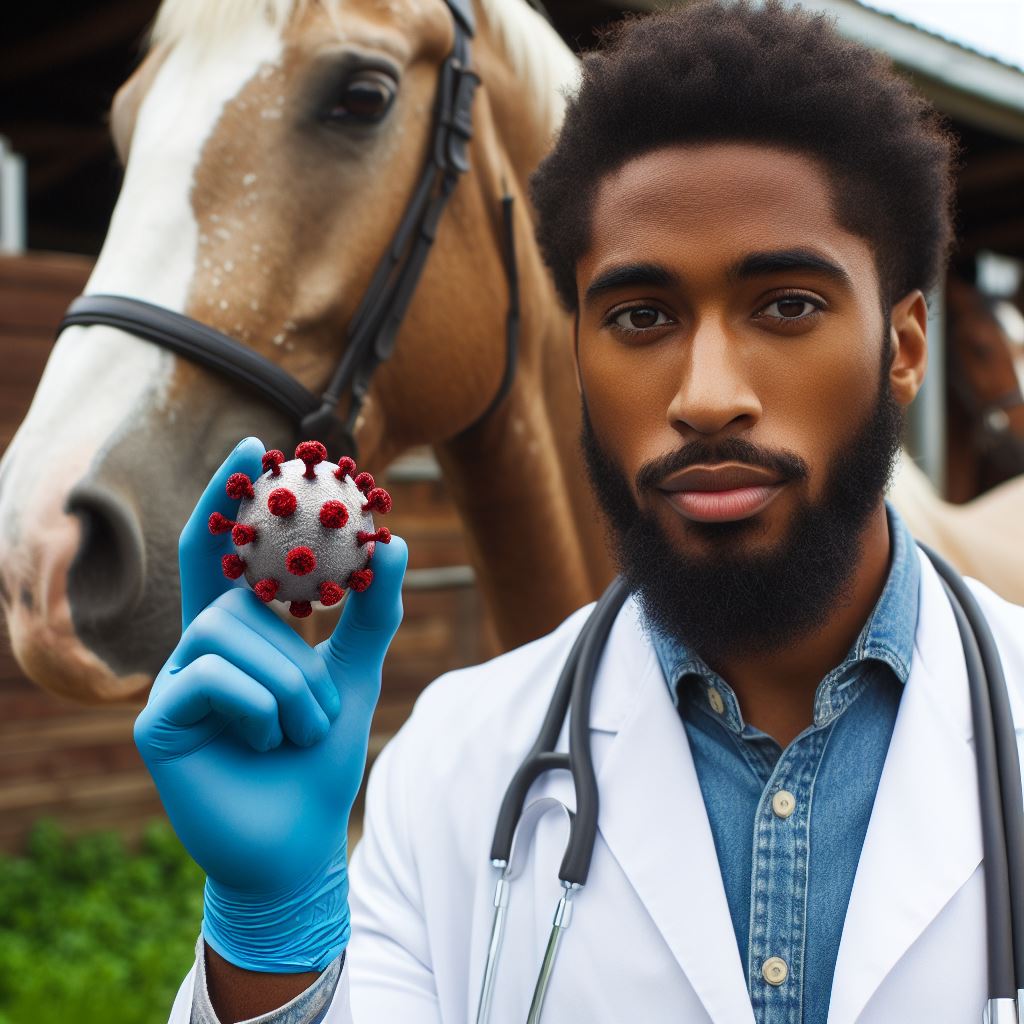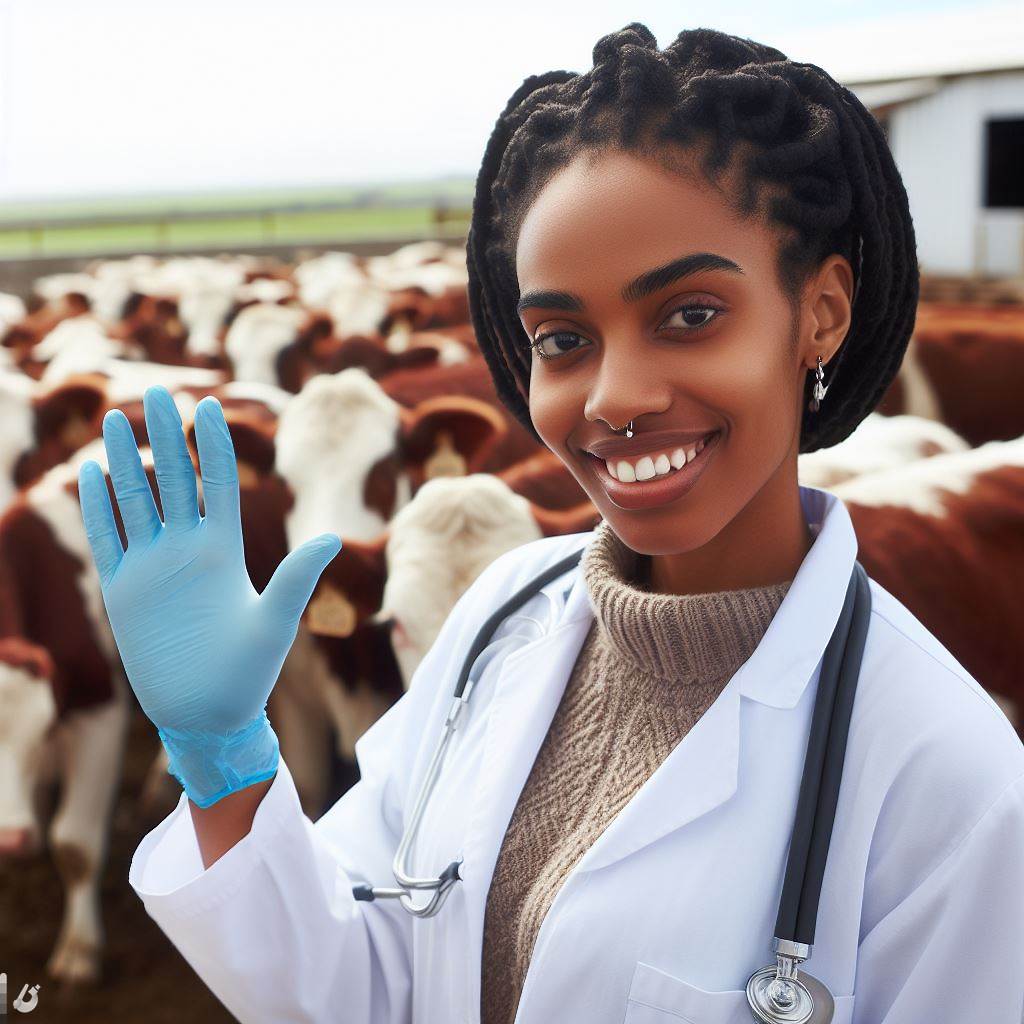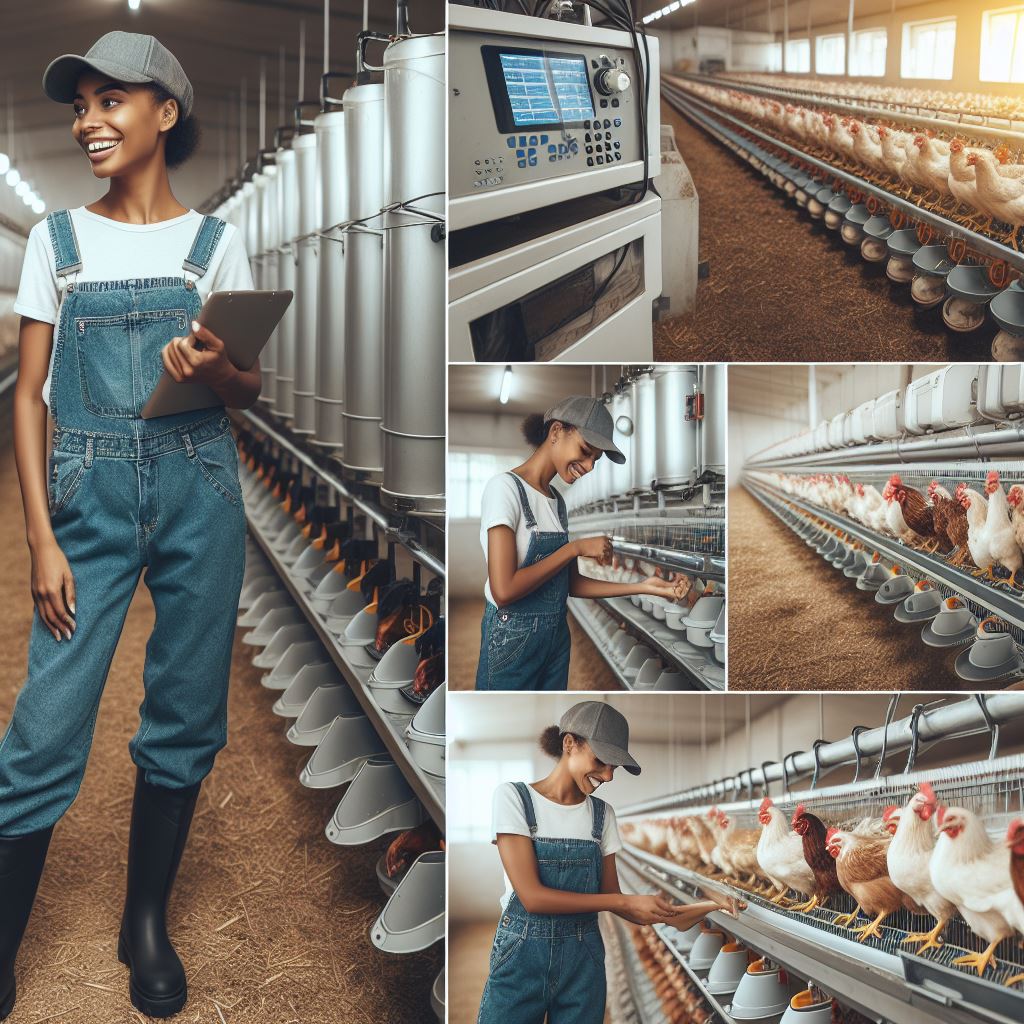Introduction
In the realm of equine well-being, this blog emphasizes the paramount importance of horse health and disease prevention.
Beyond the quest for optimal performance, it underscores the deeper connection forged between horses and their caretakers.
The purpose here is not merely informative; it’s a journey to enlighten horse owners about the profound impact of disease prevention on equine vitality.
As we navigate through this discourse, our aim is to empower horse owners with actionable strategies, providing them the knowledge to proactively care for their beloved companions.
Recognizing that the health of horses goes hand in hand with the strength of the human-horse bond, we delve into the nuanced aspects of equine health.
Join us in this exploration as we unravel the layers of disease prevention, contributing not just to the physical well-being of horses but also to the enduring and enriching relationship shared with these magnificent beings.
This blog serves as a guidepost for those seeking not just horse care tips but a holistic approach to fostering the health, vitality, and profound connection with their equine companions.
Common equine diseases
Most prevalent equine diseases
- Colic
- Equine influenza
- Strangles
Brief descriptions of each disease
These three diseases are prevalent among horses and can have serious implications for their health and well-being.
It is crucial for horse owners and caretakers to be aware of them and take necessary measures for prevention and management.
Colic
- Monitor diet and feeding practices to prevent sudden changes that can trigger colic.
- Ensure proper hydration and access to fresh water at all times.
- Regular exercise and turnout can help prevent colic by promoting healthy digestion.
- Implement a deworming program to control parasites, as they can contribute to colic.
Equine influenza
- Vaccination is the most effective way to prevent equine influenza.
- Isolate new horses and those returning from shows or events to prevent the spread of the virus.
- Maintain good stable hygiene, with proper disinfection of equipment and shared spaces.
- Practice respiratory etiquette, such as covering coughs and sneezes, to reduce transmission.
Strangles
- Isolate affected horses and those in close contact to prevent the spread of the bacteria.
- Practice strict hygiene and disinfection protocols to limit the transmission of the disease.
- Implement a vaccination program, although its efficacy can vary.
- Consult with a veterinarian for appropriate diagnosis, treatment, and management of strangles cases.
These three diseases are prevalent among horses and can have serious implications for their health and well-being.
It is crucial for horse owners and caretakers to be aware of them and take necessary measures for prevention and management.
By understanding these common equine diseases and taking proactive measures for prevention, horse owners can significantly reduce the risk of their horses falling ill and ensure their overall well-being.
Read: Dairy Cow Health: Preventing Common Diseases
Importance of vaccination
Role of vaccines in disease prevention
Vaccines play a crucial role in preventing equine diseases by stimulating the horse’s immune system to produce protective antibodies.
Commonly recommended vaccinations for horses
- Tetanus: Tetanus is a life-threatening disease caused by a bacterium found in soil, manure, and contaminated objects. Vaccination is essential to prevent this deadly disease.
- Influenza: Equine influenza is highly contagious and can spread rapidly among horses in close contact. Vaccination is crucial to reduce the risk of outbreaks and to protect the equine population.
- Rabies: Rabies is a fatal disease that affects the nervous system and can be transmitted to humans. Vaccination is important to safeguard both the horse and individuals handling them.
Benefits of routine vaccination
Routine vaccination provides several benefits to horses, their owners, and the equine industry as a whole.
Transform Your Agribusiness
Unlock your farm's potential with expert advice tailored to your needs. Get actionable steps that drive real results.
Get Started- Protection against preventable diseases: Vaccinating horses against common diseases greatly reduces their risk of infection. This protects their health and overall well-being.
- Prevention of disease outbreaks: By vaccinating horses, the likelihood of disease outbreaks is minimized, ensuring the safety and health of the entire equine community.
- Cost-effective approach: Prevention is always more cost-effective than treatment. Vaccinating horses reduces the need for expensive medical interventions to treat preventable diseases.
- Peace of mind for horse owners: Routine vaccination gives horse owners peace of mind, knowing that they have taken necessary steps to protect their beloved animals from potentially deadly diseases.
- Compliance with competition and travel requirements: Many equestrian events and equestrian facilities require horses to be up to date on their vaccinations. Routine vaccination ensures compliance with these requirements, enabling participation in various activities and minimizing potential disease transmission.
- Contribution to overall equine health: When horses are vaccinated, they are less likely to become carriers of diseases, helping to maintain a healthier equine population as a whole.
- Protection of public health: Certain equine diseases, such as rabies, can be transmitted to humans. Vaccinating horses against these diseases not only protects the horses but also reduces the risk of human infection.
Therefore, vaccination plays a vital role in the prevention and control of equine diseases.
Understanding the importance of vaccines and regularly administering them ensures the health and well-being of horses while safeguarding the entire equine community.
By staying up to date with recommended vaccinations, horse owners can effectively contribute to disease prevention and promote a safer environment for their animals and those around them.
Read: Swine Flu: Protecting Your Pig Herds

Biosecurity practices
Define what biosecurity is and why it is important
Biosecurity refers to the measures taken to prevent the spread of diseases in animals.
It is important because it helps protect the health and well-being of horses.
Practical biosecurity measures for horse owners
Quarantine procedures
When introducing a new horse to the herd, it is crucial to quarantine the horse for a specific period of time to prevent any potential disease transmission.
This helps to ensure the health and safety of other horses.
Cleaning and disinfection protocols
Regularly cleaning and disinfecting the stables, equipment, and any shared spaces is essential in preventing the spread of diseases.
It is important to use appropriate disinfectants and follow proper protocols to effectively kill any pathogens.
Limiting contact with other horses
Minimizing direct contact between horses is a crucial biosecurity measure.
This can be achieved by implementing a strict policy that restricts sharing of water buckets, grooming tools, and equipment among horses.
It also involves avoiding close contact between horses at shows or public events.
Role of biosecurity in preventing disease transmission
Biosecurity plays a critical role in preventing the transmission of diseases between horses.
By implementing and following biosecurity measures, horse owners can minimize the risk of disease outbreak and ensure the overall health and well-being of their horses.
Read: Sheep Flock Health: Common Illnesses Guide
Discover More: The Role of Technology in Poultry Farming
Proper nutrition and horse health
Nutrition plays a crucial role in impacting horse health and disease resistance.
Key nutrients that are essential for maintaining a strong immune system include:
- Vitamin E
- Selenium
- Omega-3 fatty acids
Tips for maintaining a balanced diet for horses
- Provide a diet rich in high-quality forage such as hay or pasture.
- Ensure access to clean, fresh water at all times.
- Balance the diet with a commercially prepared concentrate feed.
- Consult with a veterinarian or equine nutritionist to determine the specific needs of your horse.
- Avoid sudden changes in diet as this can lead to digestive upset.
- Monitor your horse’s body condition score and adjust the diet accordingly.
- Consider supplementing with vitamin E, selenium, and omega-3 fatty acids if necessary.
- Regularly check for any signs of weight loss, poor coat condition, or abnormal behavior.
- Properly store and handle feed to prevent spoilage and contamination.
- Regularly deworm and vaccinate your horse to prevent parasitic diseases.
By ensuring a well-balanced diet and providing the necessary nutrients, horse owners can significantly improve their horse’s overall health and disease resistance.
Read: Robotics in Poultry Farming: The Future Is Here
Regular Veterinary Check-ups
Stress the Importance of Regular Veterinary Care
Regular veterinary care is essential for maintaining the health and well-being of horses.
By scheduling routine check-ups, potential health issues can be identified and addressed before they become severe.
Benefits of Routine Check-ups and Proactive Measures
Early Detection of Diseases
Regular veterinary check-ups allow for the early detection of diseases, which can significantly increase the chances of successful treatment.
Showcase Your Farming Business
Publish your professional farming services profile on our blog for a one-time fee of $200 and reach a dedicated audience of farmers and agribusiness owners.
Publish Your ProfileDiseases such as equine influenza, strangles, and equine herpesvirus can be effectively managed if detected early.
Timely Administration of Vaccines and Deworming
Routine check-ups ensure that horses receive timely vaccinations and deworming treatments.
These preventive measures are crucial in protecting horses against common diseases and parasites.
Encourage Horse Owners to Establish a Veterinarian-Client Relationship
Developing a strong veterinarian-client relationship promotes better communication and understanding.
Regular check-ups enable veterinarians to become familiar with the horse’s health history and specific needs.
This relationship allows the veterinarian to provide personalized care and advice for optimal horse health.
Regular veterinary check-ups are vital in maintaining the overall well-being of horses.
By emphasizing the importance of proactive measures, horse owners can ensure their animals lead healthy and disease-free lives.
Early disease detection and timely administration of vaccines and deworming treatments are crucial in preventing illnesses.
Moreover, establishing a strong veterinarian-client relationship allows for personalized care and tailored advice.
It is recommended that horse owners schedule regular check-ups to promote the longevity of their horses.
Remember, prevention is always better than cure when it comes to equine health.
So, don’t underestimate the significance of regular veterinary care for your beloved horses!
Conclusion
Recap the main points discussed in the blog post
In this blog section, we explored the importance of equine disease prevention and horse health.
We discussed various measures that can be taken to ensure the wellbeing of horses, such as vaccination, proper hygiene, and quarantine protocols.
We also highlighted the significance of regular veterinary check-ups, early detection of diseases, and the implementation of biosecurity practices in preventing the spread of contagious equine illnesses.
Reiterate the significance of horse health and disease prevention
Horse health and disease prevention are crucial for maintaining the overall wellness and performance of equines.
By prioritizing these aspects, we can enhance their longevity, reduce healthcare costs, and improve their quality of life.
Preventing equine diseases also contributes to the safety and welfare of other horses within the community as it prevents the transmission of contagious illnesses, thereby minimizing the risk of outbreaks and economic losses in the equine industry.
Encouragement to prioritize equine disease prevention measures
As responsible horse owners, it is our duty to prioritize equine disease prevention measures.
By regularly consulting with veterinarians, following proper vaccination schedules, practicing good hygiene, and implementing biosecurity protocols, we can ensure the long-term health and safety of our beloved equine companions.
Let us commit to creating a healthy and disease-free environment for our horses, enabling them to thrive and enjoy a high quality of life.
Remember, prevention is always better than cure when it comes to equine health.




